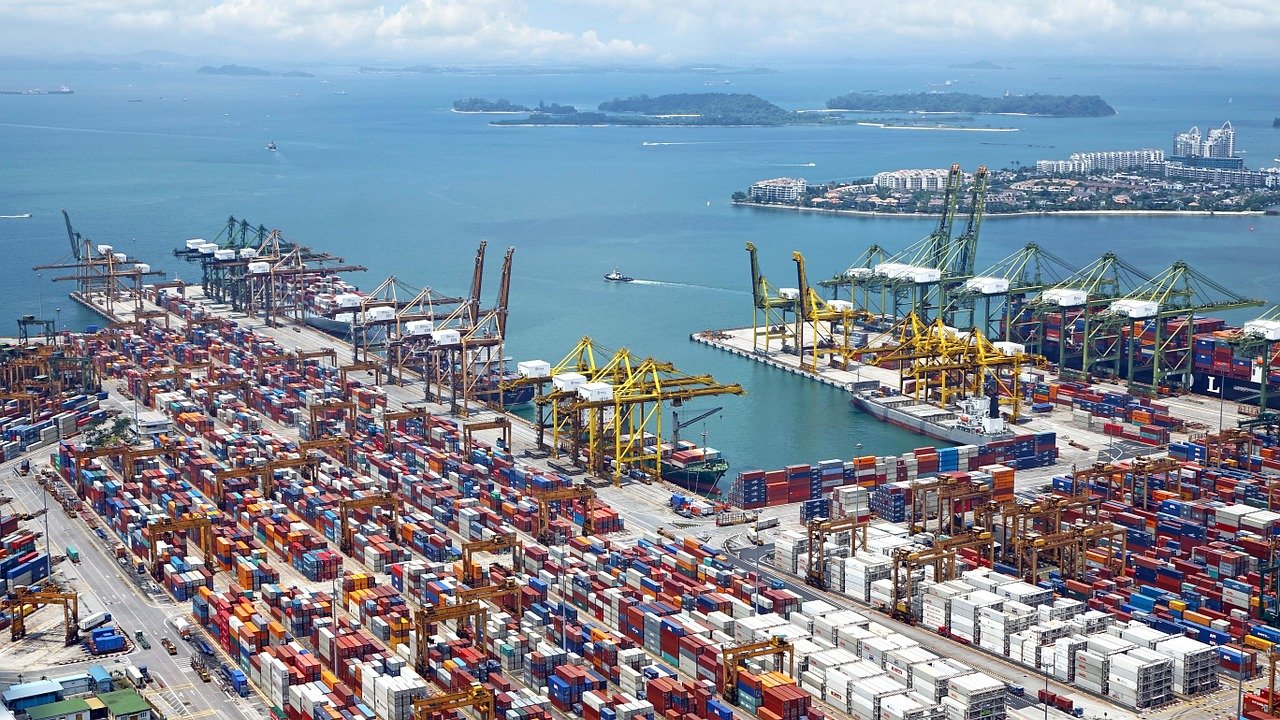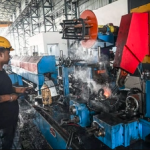Trade, import and export for MSMEs: The ongoing military conflict between Russia and Ukraine is likely to have a bearing on Indian exporters shipping goods to the region, according to experts. India’s exports to Ukraine and Russia have mostly been led by MSMEs and hence, the current crisis may hit MSME exporters with multiple challenges such as delay in shipments, late payments, damage to consignments, and more. India’s bilateral trade with Russia and Ukraine stood at $11.9 billion and $3.1 billion in 2021, as per the official data. Russia was, in fact, India’s 25th largest trading partner with $2.5 billion worth exports and $6.9 billion of imports during the April-December period of FY2022.
“Among the businesses impacted due to this crisis, most of them will be MSMEs as goods exported to these two countries, which include pharmaceuticals, machinery, and apparels, are largely by MSMEs,” Ajay Sahai, Director General and CEO, Federation of Indian Export Organisations (FIEO) told Financial Express Online.
Likely impact on exports and imports
India’s exports to Russia largely include pharma, organic chemicals, auto components, electronics. In terms of imports, Russia is India’s biggest arms supplier apart from exporting crude oil, fertilisers, precious stones and metals, etc., to India. In contrast, India’s bilateral trade with Ukraine is relatively lesser at $3.1 billion in 2021. While exports stood at $510 million including pharma, agrochemicals, food products etc., imports were at $2.6 billion during the year, around 70 per cent of which was sunflower oil.
“India exports a lot of medicines to Russia and Ukraine. If this turns out to be a long-lasting war, there would be an impact on exports from India even as it might also lead to scarcity of drugs in these two countries. Indian pharma exporters ship consignments every quarter and hence, if this crisis continues beyond March as well, then exports would be hampered,” J Jayaseelan, Vice President, Indian Pharmaceutical Association and Managing Director, Sai Mirra Innopharm told Financial Express Online. He noted that pharma export to these countries was around 12 per cent of India’s overall pharma exports to the world.
MSMEs share in India’s exports to the world was 49.5 per cent in FY21. Importantly, this figure was based on the earlier definition that had capped investment in plant and machinery to not more than Rs 5 crore for businesses to register as an MSME. The definition revised in June 2020 had expanded the upper limit by 10x to Rs 50 crore investment in plant and machinery and turnover limit to up to Rs 250 crore. Experts said the share of MSMEs in India’s exports, as a result of the new classification of MSMEs, is expected to be as much as 80 per cent.
“My assumption is that over 80 per cent of exports are now coming from MSMEs since many more businesses are now under the MSME net along with wholesalers and retailers. Moreover, most of the trade to Ukraine and Russia has been from MSMEs. The current crisis will lead to delay in delivery of goods as shipping companies may pause deliveries or if alternate routes are to be taken to reach the destination,” Rajendra Prasad Sharma, Professor, Indian Institute of Foreign Trade told Financial Express Online.
In terms of imports, coking coal imports from Russia is another area of concern for Indian businesses. Essentially a fuel, coking coal is mainly used in manufacturing steel through blast furnaces. Amid current turmoil, its price may go up from current around $300-400 per metric tonne and impact the cost of steel production. India’s coking coal imports stood at 141,577 tonnes in November 2021, down 65 per cent from the year-ago period, as per energy and commodity price benchmarks provider Argus Media.
Coimbatore-based MV Ramesh Babu who runs steel shaft manufacturing business Paramount Platers said manufacturers are not in a position to increase the cost as raw material prices have already been high during Covid. “Market also will not be able to absorb the prices immediately if we increase it. The higher cost will reduce the buying power among customers. It would also lower production and impact employment generation. Our business is still operating at 30-40 per cent lower production from pre-Covid level and Ukraine-Russia crisis might further drag it down,” Babu told Financial Express Online.
The trade impact is also seen in the light of unprecedented sanctions being imposed by the world on Russia for the war to invade Ukraine. In a joint statement on Saturday, the leaders of the European Union along with Canada, France, Germany, Italy, the UK and the US committed to “ensuring that selected Russian banks are removed from the SWIFT messaging system. This will ensure that these banks are disconnected from the international financial system and harm their ability to operate globally.”
Among other measures included imposing restrictive measures to prevent the Russian Central Bank from deploying its international reserves in ways that undermine the impact of the sanctions. SWIFT or Society for Worldwide Interbank Financial Telecommunication is a co-operative of over 11,000 banks and institutions from more than 200 countries that allow smooth transfer of money across countries.
“Sanctions will create more uncertainties for MSMEs exporting to Ukraine and Russia amid lack of secure trade and lack of export guarantees. Diplomacy and trade will have to go hand-in-hand. However, sanctions are like a weapon that will impact trade,” added Sharma.
Credit guarantee on a case-by-case basis
Experts also noted that modification in credit underwriting for exports to Russia as per the underwriting policy of the government’s export credit provider Export Credit Guarantee Corporation (ECGC) might add to challenges for MSMEs. ECGC had last week put Russia in the Restricted Cover category from the earlier Open Cover category that enables policyholders to obtain cover on a more liberalised basis. Under the Restricted cover category, exporters would now have to take specific approval on a case-to-case basis from ECGC for exporting to Russia if they want credit guarantee cover. ECGC said the step was important to ensure payments back to India are secure for goods exported in the current crisis.
“If there is a development in some country, which might have an impact on payments, then we, as an insurer, should be conscious of the risk involved. We have the right to assess the cover that we have given,” M Senthilnathan, Chairman cum Managing Director, ECGC told Financial Express Online.
The move by ECGC stemmed from the proposed removal of key Russian banks from the SWIFT network. In such a scenario, banks would not be able to process payments. This means payment for MSME exporters will be blocked. Senthilnathan said that it would be impossible to continue to export and get payments as long as the bank out of the SWIFT network is involved in the transaction. ECGC said exporters must find alternate banks that would continue in the SWIFT network in Russia and if the buyer is comfortable with that bank.
“Last year out of around Rs 20,000 crore exports to Russia, only around Rs 750 crore exports were under credit guarantee cover. We believe the same exporters will continue exporting to Russia with the cover. Hence, we need to alert them that due to the possibility of deterioration of risk and for effective utilisation of the cover, they need to take our specific approval. In case the bank is removed from the SWIFT network, there would be a significant delay in payments,” added Senthilnathan as he suggested exporters to consult general insurers to ensure a safe voyage of goods.
However, Sahai in its response to the move by ECGC noted that agri, pharma, and energy exports to Russia have been exempted by the US Office of Foreign Assets Control (OFAC) and MSMEs in these sectors should be provided with credit cover for goods exported. Moreover, he argued MSMEs should be provided with some lead time to comply with the new rule.
“ECGC mandated bill of lading cut off date till February 25. There should be some lead time as umpteen consignments have been cleared by customs or they are at the port. Do you expect exporters to take back shipments after getting it custom cleared?” said Sahai. Bill of lading is a legal document issued by a carrier to a shipper to acknowledge receipt of cargo for shipment.
After-effects
Experts believed that there could also be cascading impact of the war on trade as India is among the strongest allies of both Russia and the US. In 2021, the US was India’s top merchandise trade partner with a value of $112.3 billion. India, along with the UAE and China had abstained from the UNSC resolution on Russia’s aggression towards Ukraine. The resolution was supported by 11 UNSC members but vetoed by Russia.
“This crisis is not just about India’s bilateral trade with Russia and the US. A lot more issues might unfold ahead involving India’s equation with the two countries. One cannot look at this issue in isolation. If you are found taking a particular stand then it might irk the other ally. India will have to diplomatically handle the situation,” said Sharma. Reference: https://www.financialexpress.com/industry/sme/msme-exim/2448252/



